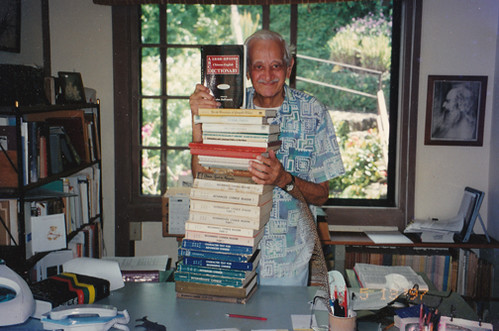No word for fair?
Over the years, we've discussed many cross-cultural comparisons based on the "No Word for X" meme. In the most recent LL post on the subject ("No word for integrity?", 12/31/2008), I asserted that
[W]hen someone makes a sociological point by saying that language L has no word for concept C, you'll rarely lose by betting that they're wrong.
But a recent assertion by Bart Wilson seems more promising — the linguistic part is supported by reference to a chapter in a recent book by an actual (and eminent) linguist, and the socio-cultural part is supported by reference to a large body of empirical research, some of which was done by Wilson himself.
Read the rest of this entry »

